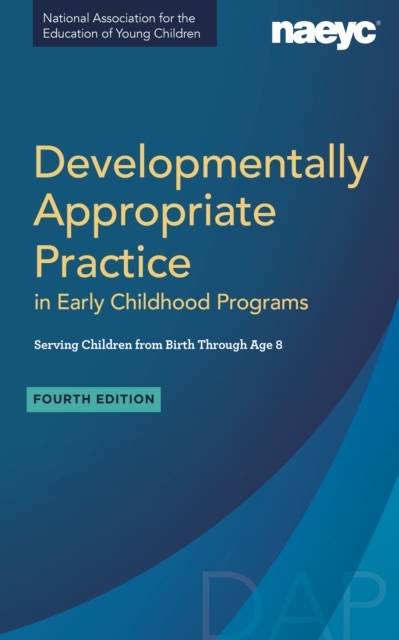
Developmentally Appropriate Practice in Early Childhood Programs Serving Children from Birth Through Age 8, Fourth Edition (Fully Revised and Updated) Paperback / softback
Edited by Susan Friedman, Brian L Wright, Marie L. Masterson
Paperback / softback
Description
The long-awaited new edition of NAEYC’s Developmentally Appropriate Practice in Early Childhood Programs is here, fully revised and updated!
Since the first edition in 1987,this book has been an essential resource for the early childhood education field.
Early childhood educators have a professional responsibility to plan and implement intentional, developmentally appropriate learning experiences that promote the social and emotional development, physical development and health, cognitive development, and general learning competencies of each child served.
But what is developmentally appropriate practice (DAP)?
DAP is a framework designed to promote young children’s optimal learning and development through a strengths-based approach to joyful, engaged learning.
As educators make decisions to support each child’s learning and development, they consider what they know about (1) commonality in children’s development and learning, (2) each child as an individual (within the context of their family and community), and (3) everything discernible about the social and cultural contexts for each child, each educator, and the program as a whole.
This latest edition of the book is fully revised to underscore the critical role social and cultural contexts play in child development and learning, including new research about implicit bias and teachers’ own context and consideration of advances in neuroscience.
Educators implement developmentally appropriate practice by recognizing the many assets all young children bring to the early learning program as individuals and as members of families and communities.
They also develop an awareness of their own context.
Building on each child’s strengths, educators design and implement learning settings to help each child achieve their full potential across all domains of development and across all content areas.
Information
-
Out of Stock - We are unable to provide an estimated availability date for this product
- Format:Paperback / softback
- Pages:368 pages, Figures and tables
- Publisher:National Association for the Education of Young Ch
- Publication Date:13/01/2022
- Category:
- ISBN:9781938113956
Information
-
Out of Stock - We are unable to provide an estimated availability date for this product
- Format:Paperback / softback
- Pages:368 pages, Figures and tables
- Publisher:National Association for the Education of Young Ch
- Publication Date:13/01/2022
- Category:
- ISBN:9781938113956






